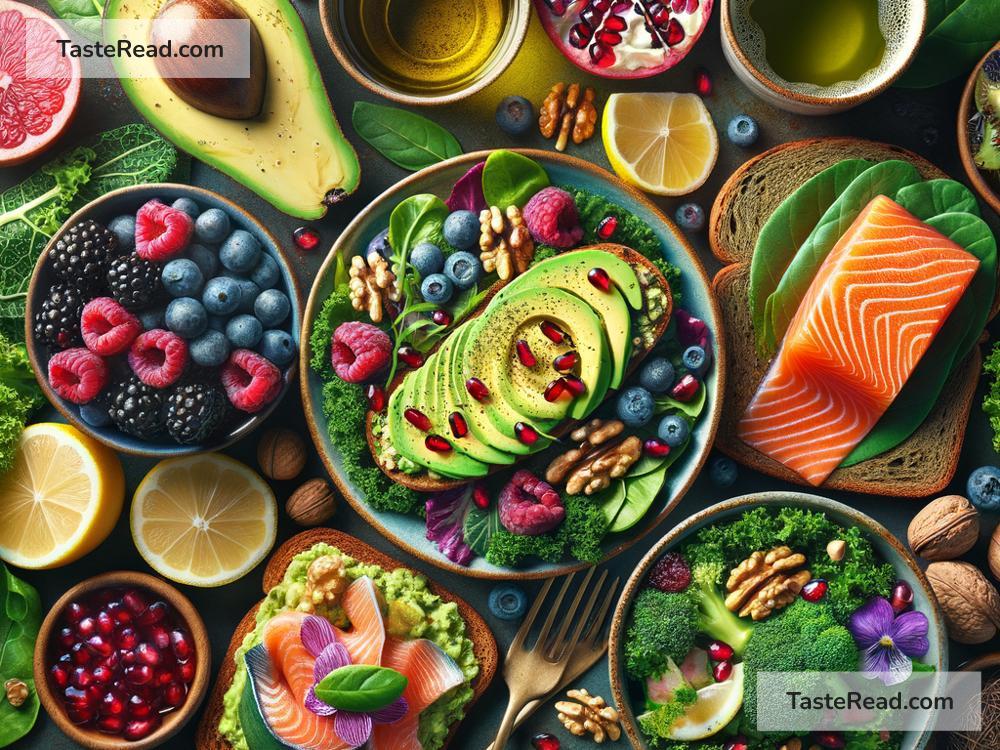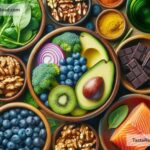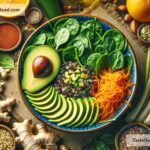Foods That Boost Brain Power: Enhancing Neuroplasticity Through Nutrition
Your brain is amazing. It’s super flexible, constantly learning, adapting, and rewiring itself based on how you live, think, and experience the world. This flexibility is called neuroplasticity, and it’s the foundation of how we build new habits, recover from challenges, and keep our minds sharp as we age. The good news? What you choose to eat can boost this brain-strengthening ability.
Let’s explore some simple, everyday foods that enhance neuroplasticity and help your brain stay healthy and adaptable.
What Is Neuroplasticity? Why Does It Matter?
Neuroplasticity refers to your brain’s ability to reorganize itself by forming new connections between neurons (nerve cells). Think of it as a “use it or lose it” system— the more you challenge your brain to learn, solve problems, and adapt, the stronger it becomes. Neuroplasticity is key for learning new skills, recovering from brain injuries, and even staying mentally sharp as you age.
But here’s the catch: like the rest of your body, your brain needs proper fuel to work its best. Certain foods contain nutrients and compounds that help support neuroplasticity, protecting neurons and encouraging their growth and connectivity.
Top Foods for Enhancing Neuroplasticity
1. Fatty Fish – The Brain’s Best Friend
Fatty fish like salmon, mackerel, and sardines are rich in omega-3 fatty acids, especially DHA (docosahexaenoic acid). Your brain loves DHA—it’s essential for building and maintaining healthy brain cells. Omega-3s also promote the growth of new synapses, which are the connections between nerve cells.
If you’re not a fan of fish, try plant-based alternatives like flaxseeds, chia seeds, and walnuts, which contain omega-3 fats called ALA (alpha-linolenic acid).
2. Blueberries – Tiny Brain Boosters
Blueberries are packed with antioxidants, particularly flavonoids, which help protect your brain cells from damage caused by free radicals (unstable chemicals in the body). Flavonoids have been shown to improve memory and encourage the creation of new neural connections.
Other berries like strawberries, blackberries, and raspberries also contain similar brain-friendly compounds, so feel free to mix them up!
3. Turmeric – The Golden Spice for Growth
Turmeric, the vibrant yellow spice often used in curries, contains curcumin, a compound with powerful anti-inflammatory and antioxidant effects. Curcumin helps support neuroplasticity by boosting the levels of brain-derived neurotrophic factor (BDNF), a protein that encourages new neural growth.
Want to make turmeric even more effective? Pair it with black pepper—it enhances the absorption of curcumin.
4. Leafy Greens – A Brain’s Superfood
Spinach, kale, and other leafy greens are loaded with vitamins like folate, vitamin K, and lutein—all of which are beneficial for brain health. Folate, for example, helps reduce levels of homocysteine, a compound that can harm neurons. By supporting neural health and reducing inflammation, leafy greens are a must-have for neuroplasticity.
Pro tip: Try adding a handful of greens to smoothies, soups, or salads for an easy brain boost.
5. Nuts and Seeds – Small Packages, Big Power
Walnuts, almonds, sunflower seeds, and pumpkin seeds are full of healthy fats, antioxidants, and minerals like zinc and magnesium. These nutrients play an important role in brain cell communication and protect neurons from oxidative stress.
Walnuts, in particular, are high in polyphenols, which have been linked to improved brain plasticity and cognitive function.
6. Dark Chocolate – Treat Yourself Smarter
Dark chocolate (the kind with at least 70% cocoa) is rich in flavonoids, which help improve blood flow to the brain. Better blood flow means better oxygen and nutrients for your brain cells, boosting their ability to connect and grow. The natural stimulants in dark chocolate, like caffeine and theobromine, also help improve focus and mental energy.
But remember—moderation is key! A small piece of dark chocolate is enough to reap the brain-boosting benefits.
7. Eggs – Nature’s Multivitamin for Your Brain
Eggs are a great source of choline, a nutrient your brain uses to make acetylcholine, a neurotransmitter that’s essential for learning and memory. They also contain important vitamins like B6, B12, and folate, which help protect neurons and support brain health.
Boiled, scrambled, or made into an omelet—eggs are a versatile option for nourishing your brain.
8. Green Tea – Sip for Brain Support
Green tea contains a compound called L-theanine, which helps promote relaxation without causing drowsiness. Combined with the caffeine in green tea, L-theanine improves focus, alertness, and overall brain function. Additionally, green tea has antioxidants that protect neurons and support neuroplasticity.
Additional Brain-Friendly Tips
While eating these foods is definitely helpful, it’s only part of the equation. Pair your diet with other strategies like:
- Exercise: Physical activity increases BDNF and boosts neuroplasticity.
- Sleep: Quality sleep is essential for clearing toxins from your brain and supporting memory formation.
- Mindfulness: Activities like meditation and deep breathing can stimulate neural growth.
- Learning: Challenge your brain with puzzles, new languages, or hobbies to keep it growing.
Conclusion: Eat for a Smarter Brain
Your brain is like a garden—it needs the right nutrients to bloom and grow. Foods like fatty fish, berries, turmeric, leafy greens, and nuts provide the essential nutrients to support neuroplasticity, allowing your brain cells to connect, learn, and adapt.
Remember, the benefits of these foods build over time. Incorporate them into your meals regularly, and pair them with healthy habits like exercise and mental stimulation. By taking care of your brain, you’re investing in a lifetime of thinking, learning, and thriving.
So, start your brain-friendly grocery list today! Healthy eating can be delicious, simple, and rewarding—for both your body and your mind.


